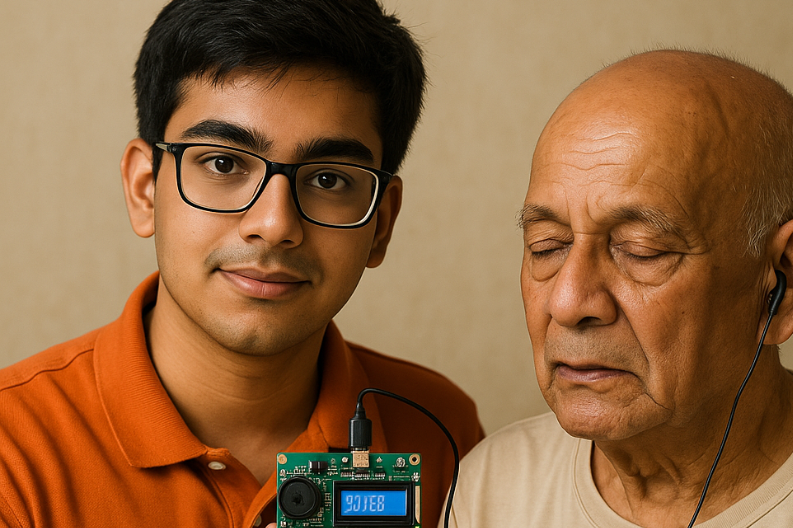A 16-year-old student from Gurgaon has created a device that is helping patients with speech difficulties communicate more clearly. Pranet Khetan, inspired by a school trip to a paralysis care center, developed an affordable AI-powered tool named Paraspeak. The device converts slurred speech into clear Hindi, giving patients a voice and helping them express themselves.
The idea came when Pranet saw patients struggling to speak but unable to make themselves understood due to strokes, cerebral palsy, or Parkinson’s disease. Determined to solve this problem, he started coding and experimenting with AI models. After months of hard work and many failed attempts, he successfully built a device that works in real-time. Paraspeak costs less than Rs 2,000, making it accessible even to families in small towns and villages.
India faces a major challenge in this area, with around 1.8 million people suffering strokes each year. Many live with long-term speech difficulties, while existing speech therapy tools are often too costly. Paraspeak offers a practical and affordable solution designed for Indian languages, addressing a critical need in the healthcare space.
One of the biggest challenges Pranet faced was the lack of dysarthric speech data in Indian languages. This data is essential for training AI to understand slurred speech. To overcome this, he created his own toolkit to collect Hindi speech samples from patients. By processing limited data in innovative ways, Paraspeak is able to recognize speech patterns and play back clear translations in Hindi.
The invention has already gained international recognition. At the Regeneron International Science and Engineering Fair (ISEF) 2025, Paraspeak won the Fourth Grand Award in Biomedical Engineering. Speaking about the experience, Pranet said, “It was surreal. I met young innovators from across the globe and realised that ideas don’t need to be perfect to create impact. What matters is taking the first step.”
Pranet now plans to expand Paraspeak to other Indian languages like Bengali and Tamil. He is also working on making the device more compact so it can fit into a pocket, making it easy for patients to carry anywhere. His vision is to create technology that bridges advanced innovation with real-world social needs.
While most students his age focus on exams, Pranet believes persistence and curiosity are the true keys to innovation. “Failures are part of the journey. You don’t need huge labs or big funding to make something useful,” he says. His journey shows how empathy and determination can lead to meaningful solutions. Paraspeak is already making a difference, proving that young minds can create powerful change when they set out to solve real problems.



